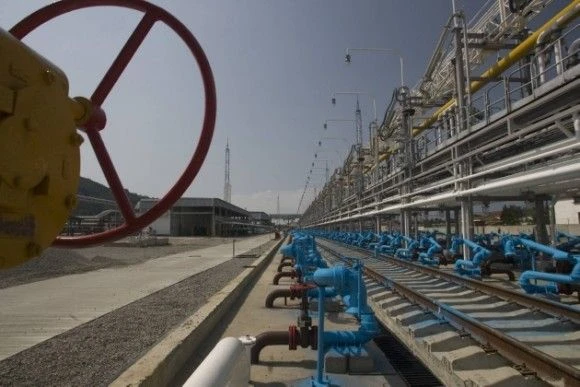Eastern Part Of Ukraine At War. “148 attacks conducted by the separatists last night”
Throughout the last couple of days, the front-line in the neighbourhood of Donbass, more and more often becomes an arena for shelling and fire-fights between the separatists and the Ukrainians. More and more civilians lose their lives. The observers are sceptical about any possibility of full implementation of the Minsk memorandums.
In the Eastern Ukraine the situation is – without any doubt – far from the one defined by the Minsk provisions. The peace so far – which is very brittle anyway – is hanging by a thread. Throughout the last couple of days, the Donbass-based separatists executed intensive shelling of the Ukrainian positions, both with the use of light firearms, as well as with the use of the banned artillery systems.
According to the Ukrainian authorities, throughout the last night, the government’s forces were shelled 148 times. Heavy artillery, mortars and Grad multiple-rocket launchers – all of these weapons were used by the pro-Russian separatists. The above-mentioned arsenal has been applied widely to attack the Ukrainians, since the very beginning of the conflict. The Separatists are said to be in possession of 300 Grad systems, however, the Ukrainian intelligence claims that ca. 100 of these systems are operated by the Russian soldiers. At the same time, some information emerged, according to which the separatist forces are being mobilized – and that this operation has the widest scope ever recorded so far. Information according to which more transports with the Russian “assistance” arrive in Ukraine.
The situation is dangerous, chief of the German diplomacy, Frank Walter Steinmeier referred to the crisis as a potential “flashpoint”. The German authorities are concerned about the possibility of a real escalation of the conflict, throughout the upcoming weeks. All of the above happens in an atmosphere, in which both parties accuse one another of breaching the provisions of the Minsk memorandum.
Last Friday, media outlets published information, according to which the separatists had reached a full combat readiness. At the same time, a special crisis meeting was organized in Moscow. Besides Putin, Russian Prime Minister, Minister of Defence and chiefs of the Russian security services also took part in the meeting. Some observers connected the events and interpreted them as a symptom for potential escalation of the situation in the eastern part of Ukraine.
Particularly, the OSCE observers noted that several empty warehouses were discovered. These storage spaces were reportedly used by the rebels to store the heavy armament. This may mean that this equipment is yet again transferred to the front-line. Additionally, some of the leaders of the separatists, including Denis Pushilin, accused Kiev of limiting the scope of implementation of the Minsk agreement, stating that should the Ukrainians step off the road taken during the negotiations, warfare would continue. This time, in the opinion of the separatists, the operations would not be limited solely to Donbass, but the above would mean that a full-scale conflict would begin.
Besides the reports, according to which the separatist activity is intensified, information, which suggests that the Russian military presence close to the Ukrainian border is being increased, is equally worrying. According to the Ukrainian military, more than 50 thousand, fully equipped, Russian soldiers are stationed along the border. Even though the Moscow authorities have been denying their involvement in Ukraine, it is estimated that more than 9 thousand Russian soldiers may be engaged in provision of support for the pro-Russian separatists. Here we mean both the troops serving in the mechanized units, as well as those coming from the assault formations, or those who are responsible for command and communications systems used by the separatists. The forces above reportedly supports more than 30 thousand rebels who have ca. 400 tanks and 2000 armoured vehicles at their disposal.
(JR)


WIDEO: Defence24 Days 2025: Premier Defence & Security Conference in CEE